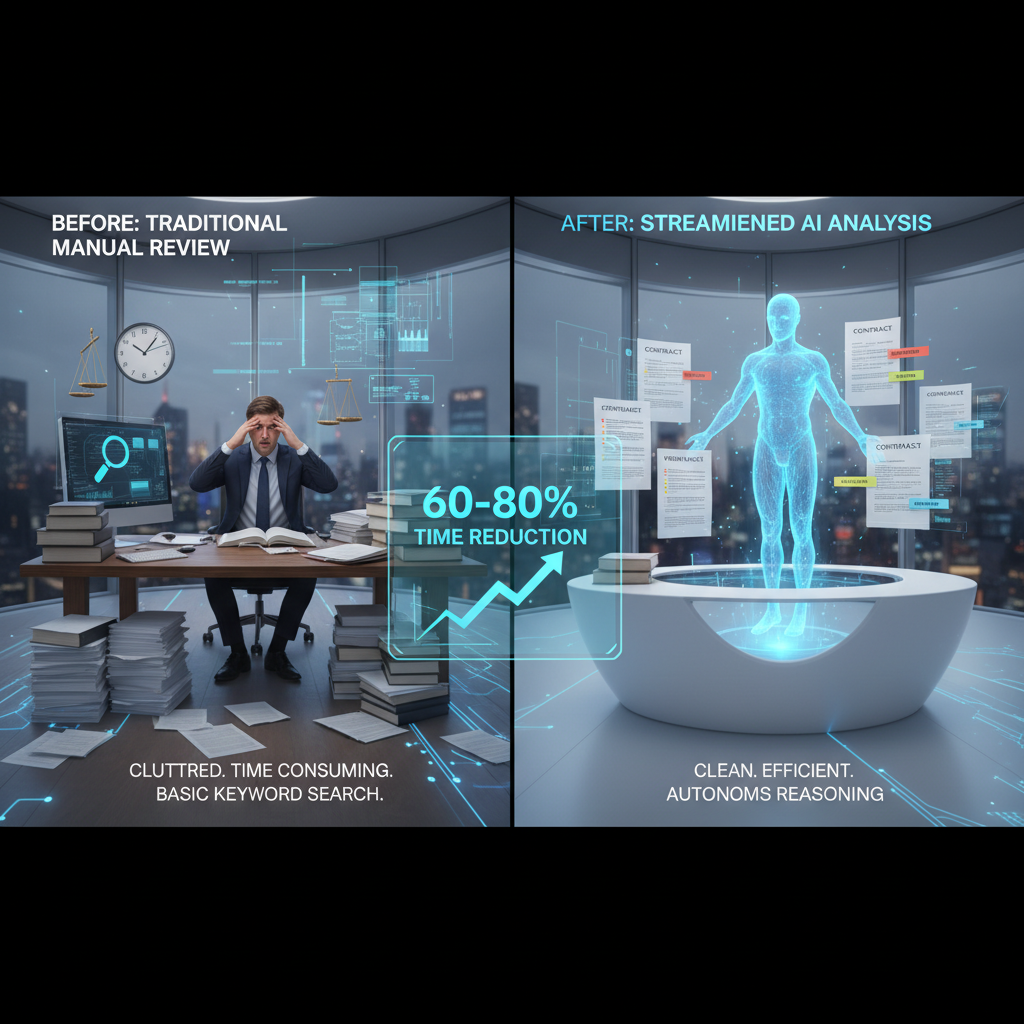
Frameworks, core principles and top case studies for SaaS pricing, learnt and refined over 28+ years of SaaS-monetization experience.
Thank you! Your submission has been received!
Oops! Something went wrong while submitting the form.
Join companies like Zoom, DocuSign, and Twilio using our systematic pricing approach to increase revenue by 12-40% year-over-year.

In the rapidly evolving legal landscape, contract analysis has long been a time-consuming and labor-intensive process. With the average Fortune 1000 company managing between 20,000 and 40,000 active contracts at any given time, legal professionals face mounting pressure to review complex agreements efficiently without sacrificing accuracy. Enter agentic AI—an advanced form of artificial intelligence that promises to revolutionize legal document intelligence through autonomous reasoning and decision-making capabilities.
Traditional contract review typically involves legal professionals manually examining documents to identify key provisions, obligations, risks, and opportunities. This process is not only time-intensive but also prone to human error, especially when dealing with lengthy, complex agreements.
Contract AI has evolved significantly over the past decade:
According to a 2023 study by Gartner, organizations implementing advanced contract analysis solutions report a 60-80% reduction in review time while simultaneously improving accuracy by up to 90%.
Unlike traditional document intelligence platforms that primarily extract information based on predefined rules, agentic AI brings enhanced capabilities that make it particularly valuable for legal document analysis:
Agentic AI systems can independently analyze contractual language, identify potential issues, and suggest modifications without constant human guidance. These systems can:
"Traditional contract analysis tools look for specific terms, but agentic AI understands relationships between concepts," explains Jennifer Tsai, Chief Legal Officer at LegalTech Solutions. "It's the difference between finding the word 'indemnification' and actually understanding the scope and implications of an indemnification provision."
Modern contract automation systems powered by agentic AI improve with each document analyzed. The World Economic Forum's 2023 Future of Jobs Report highlights that AI systems in legal analysis can now integrate new regulatory requirements and precedents into their review processes with minimal human intervention.
During mergers and acquisitions, legal teams often need to review thousands of contracts under tight deadlines. Agentic AI systems can:
McKinsey reports that AI-powered contract analysis can reduce due diligence time by up to 75% in complex M&A transactions.
Contract AI excels at identifying potential legal and financial risks within agreements:
Document intelligence systems can extract and track contractual obligations, creating automated alerts for:
According to the International Association for Contract and Commercial Management, companies lose approximately 9% of their annual revenue due to poor contract management—a gap that agentic AI is helping to close.
Despite its transformative potential, implementing agentic AI for contract analysis comes with several considerations:
Legal documents contain sensitive information, making data security paramount. Organizations must ensure:
For maximum effectiveness, agentic AI systems require:
While agentic AI can dramatically improve efficiency, human oversight remains essential for:
The integration of agentic AI into contract analysis represents just the beginning of a broader transformation in legal operations. Looking ahead, we can anticipate:
Future systems will simultaneously analyze interconnected agreements, understanding relationships between master service agreements, statements of work, amendments, and related correspondence.
Emerging AI capabilities include suggesting compromise language based on historical negotiation patterns and counterparty preferences, potentially reducing negotiation cycles by 30-50%.
Advanced document intelligence platforms will automatically incorporate changing regulations into their analysis, flagging non-compliance in real-time as legal requirements evolve.
As agentic AI transforms contract analysis, the most successful implementations will be those that leverage technology to enhance human capabilities rather than replace them. Legal professionals who embrace these tools can shift their focus from routine review to strategic analysis and relationship management.
With contract AI systems handling the initial review and flagging potential issues, legal teams can dedicate more time to high-value activities like negotiation strategy, risk assessment, and business partnering. This human-AI collaboration promises to not only improve efficiency but also elevate the quality of contract management across organizations.
For legal departments considering implementing document intelligence solutions, the key is starting with well-defined use cases, establishing clear success metrics, and creating feedback loops between AI systems and legal experts to continuously improve performance and outcomes.

Join companies like Zoom, DocuSign, and Twilio using our systematic pricing approach to increase revenue by 12-40% year-over-year.